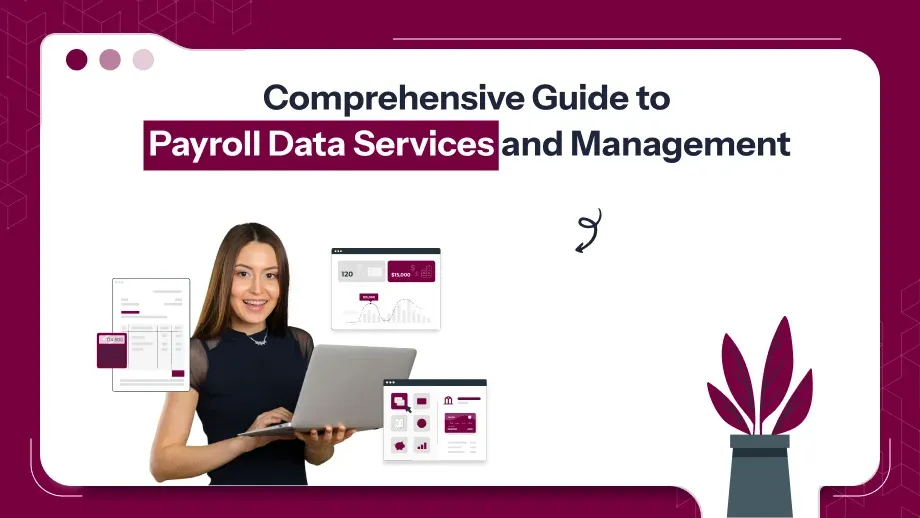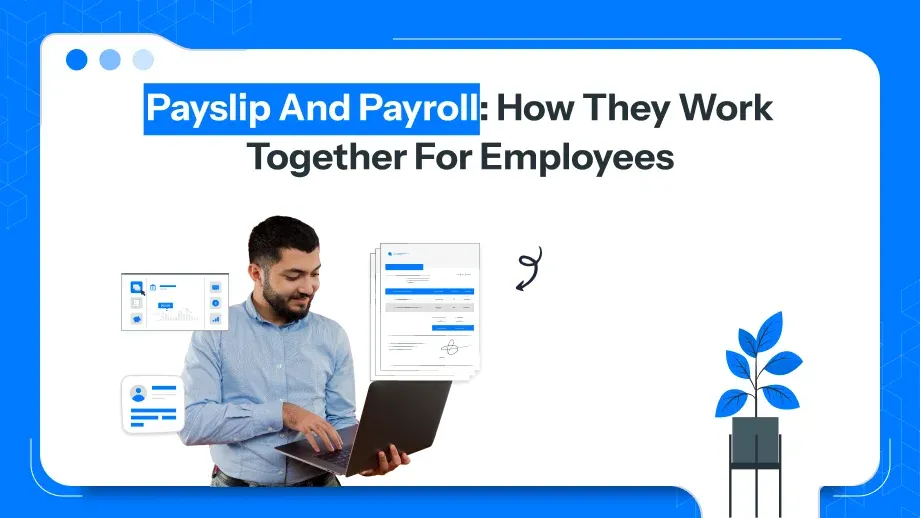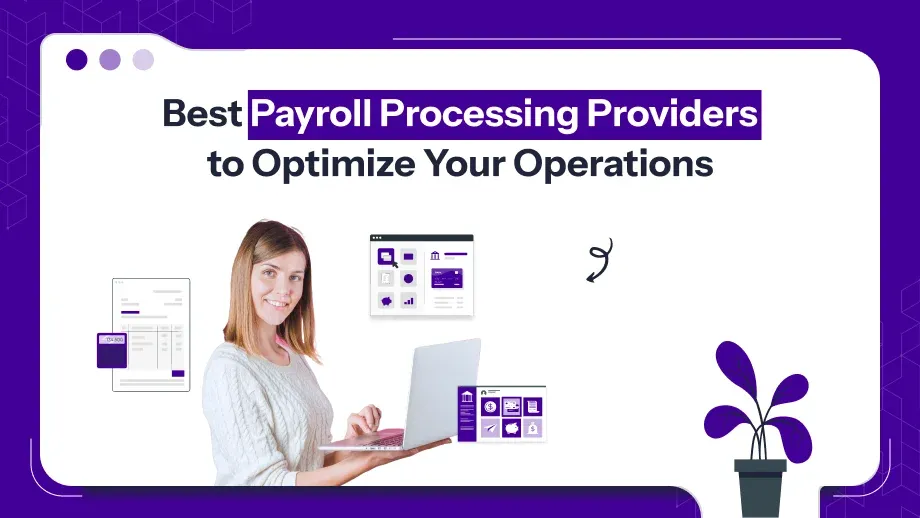Payroll Data Services encompasses the management, processing, and safeguarding of the payroll-related information in any organization. It includes activities such as computation of salary, management of benefits and taxes, and payroll bookkeeping. This service could be in-house, maintained through specific payroll software installed within the company or taken care of by third party service providers.
Grab a chance to avail 6 Months of Performance Module for FREE
Book a free demo session & learn more about it!
-
Will customized solution for your needs
-
Empowering users with user-friendly features
-
Driving success across diverse industries, everywhere.
Grab a chance to avail 6 Months of Performance Module for FREE
Book a free demo session & learn more about it!
Superworks
Modern HR Workplace
Your Partner in the entire Employee Life Cycle
From recruitment to retirement manage every stage of employee lifecycle with ease.


Seamless onboarding & offboarding
Automated compliance & payroll
Track performance & engagement
Comprehensive Guide to Payroll Data Services and Management
- payroll data security
- 8 min read
- December 30, 2024

Payroll data services which need extra care in the fast-paced corporate world of today, as companies concentrate more on simplifying internal operations. Payroll processing is a crucial operation that guarantees employees receive their paychecks on time and that firms follow local laws and regulations, but its intricate nature and importance may be underestimated. Payroll data services have thus grown into a crucial element for companies of every kind.
Specialized payroll data services and payroll software are even more important as businesses place a greater emphasis on cost-effectiveness and efficiency. Businesses can effectively calculate wages, monitor employee benefits, and handle tax deductions when payroll data is managed properly.
Payroll data security has also become a top priority as companies continue to digitize and use cloud-based technologies. Payroll data security is now a legal and reputational responsibility in addition to being an operational requirement.
Payroll data protection against data breaches and illegal access is essential given the increase in cyber threats. To protect sensitive data, this calls for the use of strong encryption techniques, safe storage procedures, and frequent audits.
What are Payroll Data Services?
Payroll data services deal with the overall management and processing of payroll inside a company. This covers duties including paying staff, managing expenses, complying to tax rules, preserving payment records, etc. These goods and services can also be provided by external payroll suppliers or domestically using specific software.
Payroll data services could provide companies an integrated strategy for handling compensation and benefits for staff members, reducing the probability of mistakes, and adhering to tax & labor regulations. Businesses can ensure that their payroll system is accurate, efficient, and safe by using advanced payroll management applications, data management solutions or outsourced pay-related tasks.
The Role of Payroll Data Management
Payroll data administration is at the heart of any payment system. Payroll data must be handled, processed, and maintained in an orderly manner. This includes hours worked, tax information, wage rates, advantages, and taxes. Proper pay administration of data ensures that all payroll data is accurately recorded, updated, and maintained in a way that remains efficient and consistent with laws.
Payroll data management is helpful for:
Get rid of mistakes: Pay errors that could result in payments in excess, insufficient payments, or issues with taxes decrease when right and current payroll data is kept.
Verify adherence: Companies can maintain conformity to local, state, and national pay rules through the use of payroll data management.
Processing payroll: Payroll staff are able to focus on more strategic duties since automated payroll management of data saves them labor and time.
Support reporting and auditing: Effective reporting and auditing is ensured by accurate payroll information.
As a result, companies must both invest in the appropriate software for payroll or contract with specialized payroll service providers that handle enormous volumes of payroll data.
The Payroll Data Security Importance
Payroll security of information has grown to be a major problem as companies process payroll more and more using digital solutions. Sensitive information such as employee numbers for social security, bank account information, salary information, and tax identification numbers are all included in payroll data.
Ensuring compliance with laws and preserving confidence in workers require securing this data from unwanted access.
Several strategies can help bolster payroll data security:
Data encryption: In both transit as well as rest, payroll data should be protected. It also means that the data will stay unread even if it is intercepted or viewed with permission.
Access control: Maintaining that only authorized people can view or alter sensitive payroll information is rendered feasible by limiting access to payroll data according to roles and responsibilities.
Payroll systems: It would benefit from multi-factor authentication (MFA), which requires users to authenticate themselves using several different methods.
Frequent audits and monitoring: Potential security breaches can be identified and avoided with the use of routine payroll system audits and suspicious activity monitoring.
Employers: employers can mitigate the risks relating to data breaches, protect employee privacy, and avoid data breaches by investing in payroll data protection solutions to them.
Payroll data services that ensure accuracy and compliance.
Streamline your payroll process and get started today!
Using Payroll Data Analytics
Organizations utilize payroll data services or payroll analytics in increasing numbers in the modern corporate world to improve their payroll procedures. Businesses can better understand their workforce costs, trends in compensation for staff, and opportunities for growth by analyzing payroll data.
Some of the key benefits of payroll data analytics include:
Cost control: Payroll data analytics may help organizations in comprehending labor cost trends, allowing them to make rational choices about resource allocation, pay organizing, and budgeting.
worker optimization: Companies can optimize staffing data and boost worker efficiency by using payroll analysis of data to learn more about employee productivity, extra patterns, and the efficacy of employee benefits.
Tax and compliance insights: A business can gain a better understanding of its tax obligations via payroll analytics. Potential underreporting or overreporting of income, taxes, and deductions are two examples of such.
Retention and happiness of employees: It might be helpful in modifying pay habits to attract the most skilled people and ensure that they have fair compensation.
With the right tools and expertise, payroll data analytics empowers organizations to make data-driven decisions that not only improve payroll efficiency but also enhance overall business performance.
Streamlining Payroll Data Entry
The most tedious and prone to errors task of payroll processing is payroll data entry. All the employee hours, wages, deductions, and bonuses need to be precisely entered into the payroll system for accurate payroll output. The automatic systems can contribute to significant reduction of time and efforts needed to enter data with less human error.
Here are some best practices on how to streamline payroll data entry:
Automated time tracking: By using software or time-tracking devices that keep track of employee hours automatically, less manual entry is needed, and all data is updated and accurate.
System connectivity: Payroll apps may reduce the need for human data entry through integration with HR, finance, or scheduling programs, as they automatically sync worker information with multiple applications.
Cloud-based payroll systems: Payroll data entry is made easier and error-free by cloud-based payroll remedies, which also involve real-time updates, interactive features, and automatic mistake checks.
Employee self-service portals: Workers can enter details about themselves, deductions for taxes, & hours worked via secured portals, which improves the precision of data and lowers the load for pay staff.
Payroll Outsourcing Can Boost Efficiency for Small Business
Most firms, especially SMEs, can benefit from payroll outsourcing data services. Employing outside companies with payroll processing expertise could help businesses save time and concentrate on their core competencies.
Benefits of outsourcing payroll data services
There are four main benefits of outsourcing payroll data services which are described below in more detail.
Cost Savings
Payroll outsourcing can result in significant cost savings for businesses, particularly small and medium-sized enterprises (SMEs). Many small businesses handle payroll internally by either hiring a dedicated payroll team or assigning this responsibility to current employees.
This frequently entails unstated expenses such as internal staff training, benefits, and salary. Furthermore, handling payroll internally may require investments in payroll software, updating it regularly, and maintaining infrastructure to store payroll data securely.
Expertise and Compliance
Complex pay computations with adherence to different state and local, as well as federal, regulations add layers to payroll processing. Moreover, these regulations frequently update themselves, and staying current about the tax laws, the kind of deductions, or wages are very challenging to keep by any in-house payroll staff.
Outsourcing your payroll is a way for experience as well as current up-to-date knowledge from any competent professional service provider in managing updated compliance requirements, right from taxation withholding to labor legislation.
Time Savings
Any growing business has precious time, and payroll management is a very time-consuming activity. It entails a number of tasks, including keeping track of worker hours, figuring out pay, processing deductions, and timely reporting of taxes.
Payroll may be managed by one or two workers for smaller companies who also have other duties, which can result in inefficiencies and errors.
Security and Technology
Security is the main priority in today’s digital environment, especially when it comes to sensitive data like payroll. It can be difficult and expensive to maintain safe methods for processing and storing payroll data internally.
Small firms might lack the funds and know-how to use payroll automation with the newest technology and protect against fraud, hacking, and data breaches.
Conclusion
Payroll data services are very important for businesses of all sizes to ensure smooth and efficient payroll processing. Efficient payroll data management, enhanced payroll data security, actionable payroll data analytics, and accurate payroll data entry contribute significantly to operational efficiency, cost management, and compliance with tax and labor regulations.
Whether businesses are choosing to do payroll in-house or outsource the whole process, leveraging the might of advanced payroll data services can lead to a better, more secure, and streamlined payroll process.
FAQs
What are Payroll Data Services?
How do payroll data services benefit businesses?
Payroll data services help businesses to ease payroll processing by reducing manual errors and ensuring compliance with tax and labor laws, making their processes more efficient, thereby ensuring timely payments to their employees.
Can payroll data services be outsourced?
Yes, companies can contract with professional payroll providers to handle their payroll data needs. Businesses can save time, lower compliance risks, and guarantee that pay is processed effectively using cutting-edge technology by outsourcing. In addition, it enables companies to benefit from in-depth understanding of local, state, and federal legislation.
How is it in place for payroll data?
Payroll security for data is crucial since it includes private information about workers, including bank account information, tax information, and Social Security cards. To stop data breaches, it uses multi-factor authentication (MFA), role-based access control, data encryption, regular audits, and safe cloud storage.
How Can Payroll Data Entry Be Streamlined?
Payroll data entry can be automated through the integration of payroll systems with HR and scheduling software, time tracking, and employee self-service portals. This saves less time for manual entry of payroll data, minimizes errors, and saves more time.


